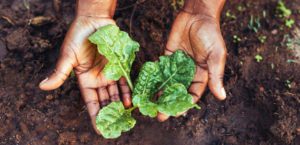
World Toilet Day – From 1% to 100% Coverage!

World Toilet Day is celebrated globally on 19th November. RVWRMP has been committed since 2006 to the struggle for sanitation for all in Sudurpaschim and Karnali provinces of Nepal. In fact, Finland began supporting this work back in 1990 in the ‘Lumbini’ project in Nepal – when access to basic sanitation in the rural areas was estimated to be 1% of all households!
At first, RVWRMP used to heavily subsidise toilet construction. However, we soon learned that unless communities really understood the importance of sanitation and felt it emotionally, they had little ownership of the process. Toilets would end up being used for storage, while family members continued to go to the jungle for their toilet needs (old habits won out over the risks of wild animals, insects and violence). When Nepal began its drive for national sanitation, RVWRMP began to apply the Community-Led Total Sanitation process which eventually became “local government-led total sanitation” in Nepal. RVWRMP stopped directly subsidising most toilets in Phase II, and instead used behavioural ‘triggering’ methods to shock communities into understanding the importance of everyone using a toilet, always. Villagers realised that it is no use that one household is using a toilet if their neighbour doesn’t. Households were motivated to build their own toilet, and after an intense community awareness-raising and monitoring process, communities were declared Open Defecation Free (ODF).
At the same time Nepal signed up to the United Nations Declaration of the Human Right to Water and Sanitation in 2010 (this is the tenth anniversary in 2020). The Declaration defines the right to universal access to sanitation that is safe, hygienic, secure, socially and culturally acceptable, provides privacy and ensures dignity. The Constitution of Nepal (2016) also recognised this right. This doesn’t mean a flushing toilet will be built for all, nor does it mean that toilets should be free! But it does mean that the focus should be on ensuring that the very poorest and most disadvantaged groups get additional support to build basic toilets.

These village, district, and then provincial ODF declarations, culminated in Nepal being declared Open Defecation Free in 2019. This is rightly a great source of pride for the Nepali people, having so quickly turned around the sanitation coverage.
However, it isn’t possible to assume the work is finished. Whenever a new house is built, it needs a toilet. Temporary toilets need to be improved, to ensure they are attractive and sustainable. Households and schools need to ensure that the toilets are cleaned regularly, and water is available for use. Emptying the toilet pits and septic tanks in safe manner is still a challenge to tackle. And most importantly, the behaviour change messages need to continue. It is no use having a toilet unless it is used and maintained in a hygienic state! Everyone in the household should use the toilet on all occasions.
The greatest barrier to this is related to menstruation taboos. It was a surprise to discover that menstruating women and girls were not allowed to use the newly constructed toilet in many households. This was due to religious and cultural taboos that consider the woman is ‘dirty’ and would ‘contaminate’ the water and toilet if she used it. This meant that the community was not truly ODF. This meant that awareness-raising and behaviour change activities were needed to change attitudes, and ensure this basic human right was observed – both at home and in schools and workplaces. This work continues today.

Although RVWRMP doesn’t subsidise household toilets anymore, it does support the construction of school (and some institutional) toilets. We are building child, gender and disability-friendly toilets where geographically feasible. Schools need to continue work to ensure the children and teachers have attractive, comfortable and accessible toilets for use by everyone. If girls know that they have access to a toilet with a lockable door, water for washing, access to sanitary pads and space to change them (and dispose of them appropriately), they are much more likely to attend school regularly.
Access to toilets is not always easy for the frail elderly and people with disabilities. Households often built their toilet on the only available land, which might be steep to access. RVWRMP has an accessible toilet brochure and works to advise households on how to improve access to toilets, by adding small alterations such as toilet chairs, ramps, handrails or ropes for support. Maintaining independent access to toilets is important for maintaining dignity.

Finally, everyone is aware of the impact of the pandemic COVID-19, and the importance of stopping its spread. While efforts are naturally more focused on hand-washing (plus social distancing, etc), coronavirus is detectable in faeces, and thus potentially a risk. Hence this is yet another reason why it is important to use toilets at all times, and wash hands with soap always. Hand-washing facilities with soap should be available beside every toilet.
Nepalis have good reason to be proud of the huge advances they have made in sanitation. Yet, World Toilet Day is still important. The total sanitation campaigning continues, and in November 2020 local governments are strongly promoting the message of –
Using a toilet always is the basis of total sanitation; Hygienic behaviour for a healthy family!





